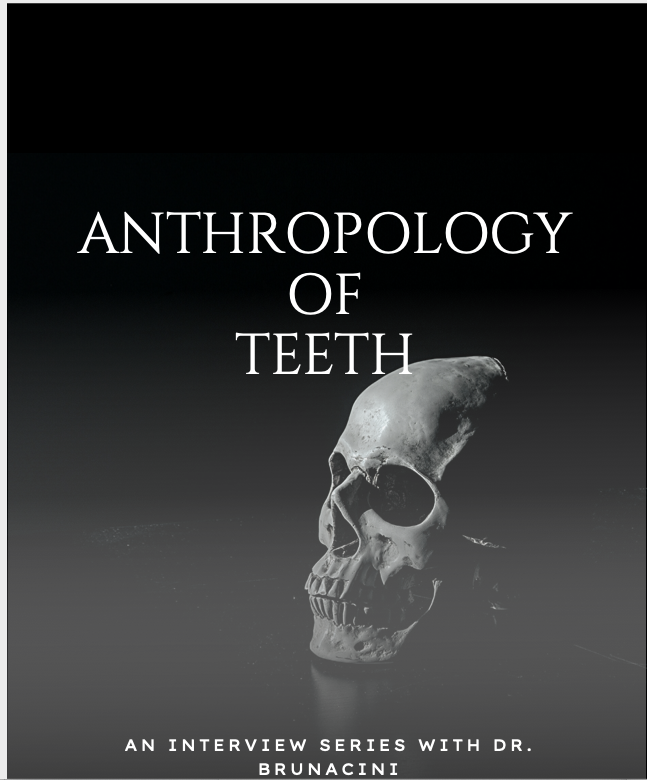Not only does Dr. Brunacini love to learn more about your personal dental history during a checkup, he also loves to learn more about the larger history of human teeth. What’s not to love?! Our teeth are the result of hundreds of millions of years of evolution and are amazing! This month we continue our Dental Anthropology interview series with Dr. Brunacini. Join us for Part 2: The Evolution of Our Teeth.
What interests you about the evolution of teeth?
Dr. Brunacini: I think there is always fascination in where we came from and there is so much for us to learn! Learning more about our dental history helps us know more about the issues that impact a lot of patients currently. For example, we are learning that as our jaws have become smaller over time our ability to breathe through our nose properly has also been affected. This may contribute to developing sleep apnea and/or bruxism (grinding your teeth) and can affect multiple systems in the body.
What else have we learned about how our teeth have evolved over time?
Dr. Brunacini: As I mentioned our jaws have become smaller over time, but our teeth have changed very little. This is due to our early ancestors subsisting on a diet of chewy leaves, roots, and raw meat, which required more chewing and thus contributed to them developing much larger jaws. This allowed enough room for all of our teeth to develop properly and erupt into the correct position. As man evolved to have larger brains, our diet became softer and more processed, and our jaws shrunk. The wisdom teeth stuck around though, but with less space to accommodate them. That’s why we often have to remove wisdom teeth for our patients!
Is there an evolutionary explanation for some of the current-day dental afflictions?
Dr. Brunacini: The evolution of our diet plays a significant role in cavity formation. Cavities can develop due to eating more soft, processed foods. Of course, proper brushing and flossing help reduce the risk of cavities, but cultures that do not eat sugary, processed foods have significantly fewer dental problems. Processed foods also require less chewing, which contributes to improper jaw development and misaligned teeth. All the more reason to eat a healthy diet and come in for regular checkups with us!
Thanks, Dr. Brunacini!
We’ll continue this series later on this fall with a final interview with Dr. Brunacini on the topic. If you have a question on our dental evolution or need to schedule a checkup, please give us a call at 207.781.5900.

